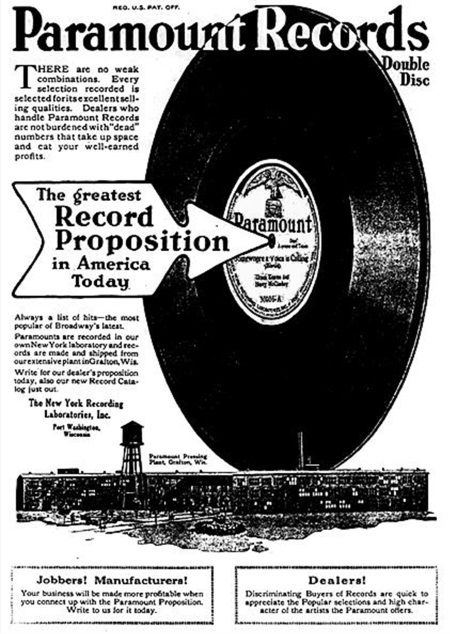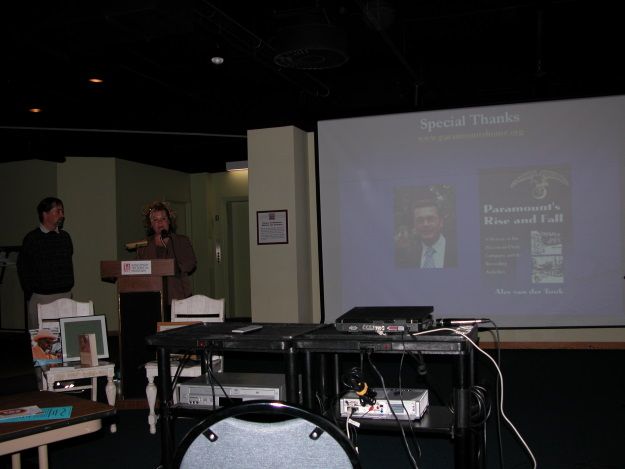Last Friday I went down the Wisconsin Historical Society Museum to hear a lecture on the history of Paramount Records. Angela Mack and her husband Patrick gave a presentation on the history of Paramount Records and what is being done now to commemorate the legendary label.
Mack began by talking about how she and her husband met in Madison but moved to the small town of Grafton after Patrick's job moved there. They lived there for about 8 years without knowing anything about Paramount Records when, one day, she saw an ad in the paper by a collector of the label's platters looking to buy any its records. The ad stated that the guy would either go to the seller or that the seller could meet him at his hotel. Thinking this a rather odd thing, she moved on. A short time later, Angela came across Paramount on the Internet and her curiosity was piqued. She and Patrick then dug into Paramount's history which was also the history of Grafton.
Paramount started distributing in 1918 and was a subsidiary of the Wisconsin Chair Company in Grafton (a bit north of Milwaukee). The WCC was contracted by Edison Records (Yes, Thomas Alva) to make phonograph cabinets. Seeing a lucrative market, WCC began making phonographs themselves and decided to give away records along with them. While Paramount is today best-remembered for having released music by blues and jazz legends such as Skip James, Son House, and Louis Armstrong, the label initially released recordings of bands playing ethnic music that appealed to the locals who were mostly German. But the local market was not enough and the label expanded its roster.
Mack noted that, at the start, the recordings were actually made in New York, Chicago, and a town in Indiana that I cannot recall the name of. The wax masters were then shipped via train to Milwaukee and they then made their way to Grafton. There was a Powerpoint presentation with photos of the pressing plant building but there were only 2 known photos showing the interior. This process of recording out of state and shipping the masters was expensive and, in 1929(?), the company opened a recording studio in Grafton. Eventually The Great Depression would catch up to Paramount and it closed its doors in 1935.
There were lots of little anecdotes throughout the night. For instance, the Mack's spoke to a woman from Grafton who sat on Ma Rainey's lap. Although Rainey did not record in Grafton, she did visit the town. Angela spoke about trying to track down more info on Paramount and her never-ending desire to speak with people who were living in Grafton at the time. As an example of how difficult it is to get solid facts, she related how some folks don't recall having seen black folk in town while others recall them quite vividly. One person spoke of how, when she was a little girl, the blues musicians would walk by her home, singing as they strolled along. She would run out to the fence and the musicians would sing to her.
The Macks are not historians but rather involved community members looking to keep the Paramount legacy alive. They are helping to get a Paramount Walk of Fame put in as part of a general revitalization of Grafton. More info can be found at Paramounts Home. There's also a book by Alex van der Tuuk called Paramount's Rise and Fall: A History of the Wisconsin Chair Company and Its Recording Activities.


No comments:
Post a Comment